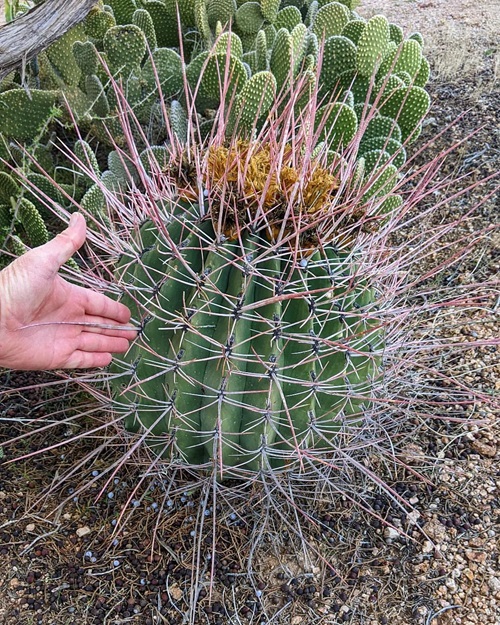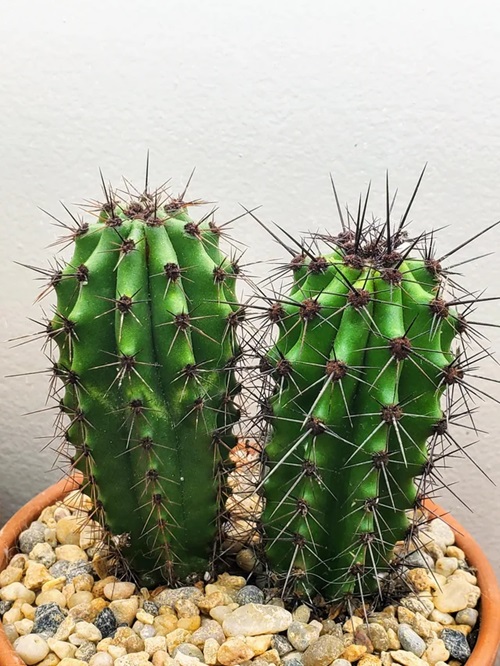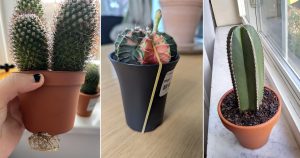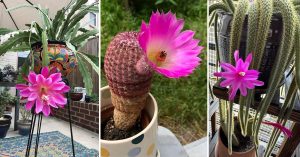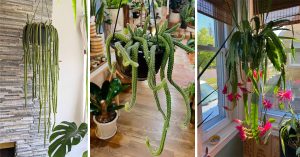If you have a love-hate relationship with cacti, here are some you should never grow. Check out the cactus with biggest thorns!
When we hear the word “cactus”, our mind immediately drifts to the image of a rocky desert, with the sun burning overhead and tall, green, bare-bone structures standing in the middle. While the picture may be bleak, these “structures” are surely not! In this article, we talk about the cactus with the biggest thorns!
Cactus With Biggest Thorns
1. Saguaro
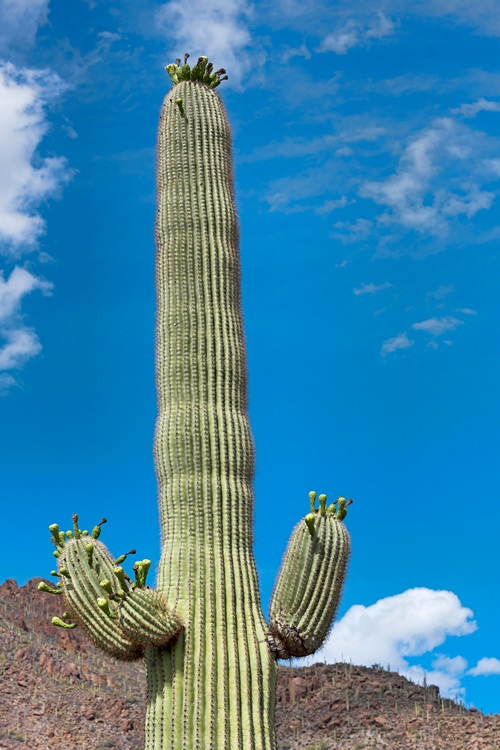
Botanical Name: Carnegiea gigantea
The tallest cactus species in the United States growing over 40 feet in height, the Saguaro sports spines that can grow to 7 cm long which is more than 2.5 inches. These spines cover the entirety of the cactus’s prominent ribs, evident throughout the main trunk and the erect branches.
Did you know, The Saguaro cactus can live up to 150-200 years! It only begins to grow its characteristic arms after 75 years.
2. Giant Prickly Pear
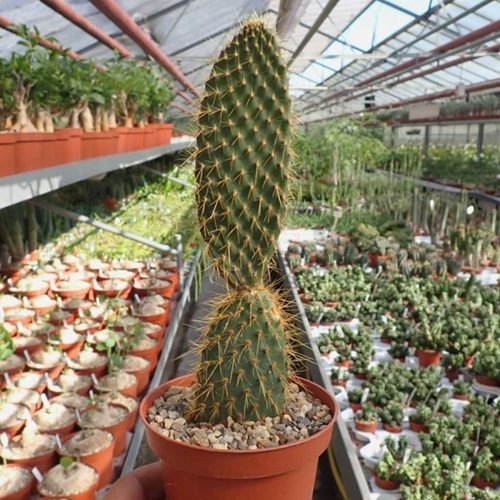
Botanical Name: Opuntia echios
This cactus species showcases two types of thorns. The larger spines, which grow up to a length of 3 or 4 inches can be very painful as they are sharp enough to pierce leather! The shorter spines called glochids can also get caught in clothing or skin easily, causing irritation.
Tip: Always handle the Prickly Pear with thick gloves and long sleeves to avoid those nasty glochids, which are difficult to remove once they latch onto your skin
3. Barrel Cactus
Botanical Name: Ferocactus spp.
A large genus of cacti with exceptionally large spines ranging 4 to 6 inches in length, the Barrel cactus, true to its name, showcases a tubular shape, just like a barrel. This squat, ribbed, spiky cactus is named after the Latin word “Ferocactus” which literally means “fierce cactus”, owing to the appearance of dense and stiff spines covering the fleshy-looking body.
4. Old Man Cactus
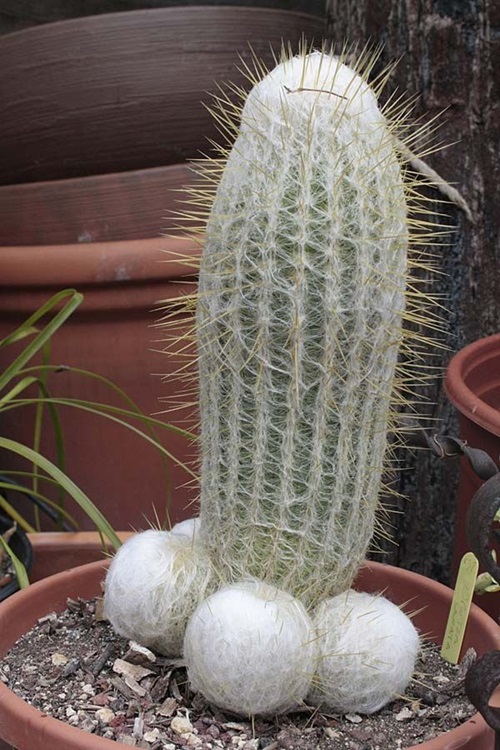
Botanical Name: Cephalocereus senilis
Yet another aptly-named cactus, the Old Man cactus too features spines of 4 to 6 inches in length. But the most unique feature about this cactus is that its spines are long and hair-like, resembling the hair of an old man!
The hair-like spines of the Old Man cactus provide shade, protecting it from the strong sun of its native Mexican habitat.
5. Golden Barrel Cactus
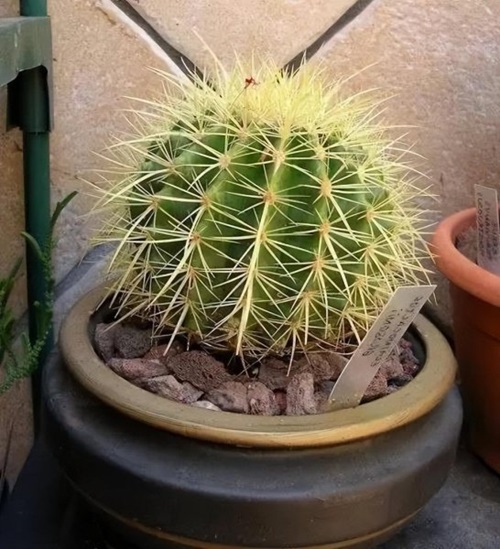
Botanical Name: Echinocactus grusonii
Do not confuse this with the Barrel cactus! The spines of the Golden Barrel cactus are a bit shorter than the others on this list but they are still a formidable 3 inches! Similar to the Barrel cactus, the spines on this cactus are densely packed on the cactus body.
Apart from its look, the Golden Barrel Cactus is popular in ornamental gardens and is often popular as the “Mother-in-Law’s Cushion.”
6. Cardón Cactus
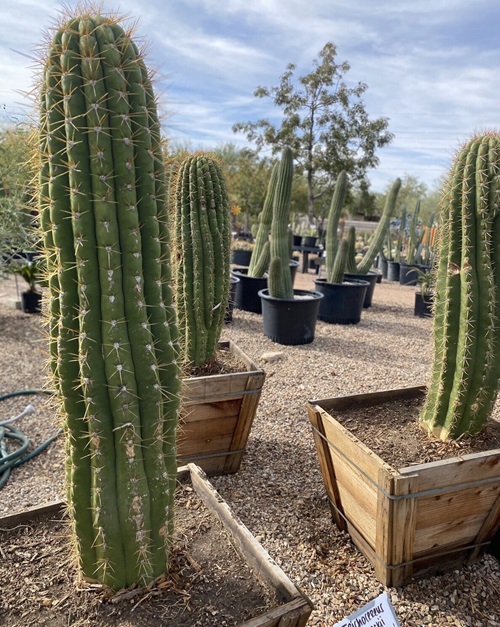
Botanical Name: Leucostele terscheckii
Native to Northern Argentina and South America, this cactus features 3 to 4-inch spines that are yellowish. They are set about an inch apart over the light-green, cylindrical, fleshy ribs. But that’s not all! The Cardon Cactus also showcases funnel-shaped white flowers that bloom at night.
7. Organ Pipe Cactus
Botanical Name: Stenocereus thurberi
The structure of the long narrow stems growing up from the trunk base is not the only appeal of the organ pipe cactus. This cactus even has a monument named after it! Showing straw-colored spines of 1.5 inches in length, this cactus also produces white nocturnal flowers that are pollinated by bats.
8. Peruvian Apple Cactus
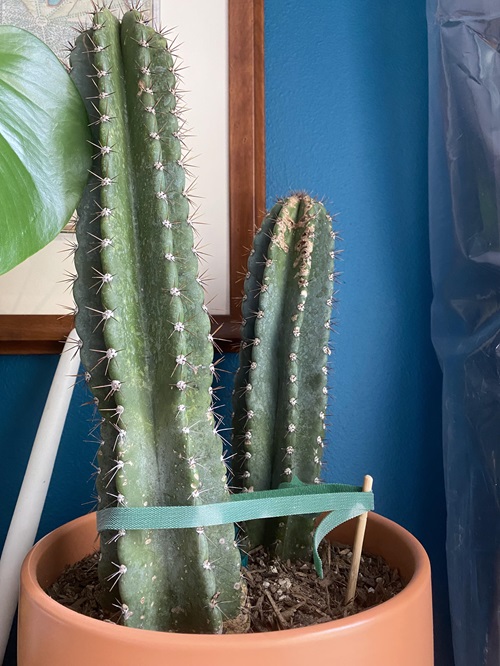
Botanical Name: Cereus peruvianus
This tree-like variety of cacti grows quite fast and on maturity, showcases a columnar growth habit with several pale-green upright or slightly curved branches. The cactus features small patches or “areoles” of coppery spines, each measuring up to 5 cm in length.
Evident from the name itself, this cactus produces red or purplish edible fruit, resembling apples. And the fruits are deliciously sweet and you can be eat fresh or use it in smoothies.
9. Jumping Cholla
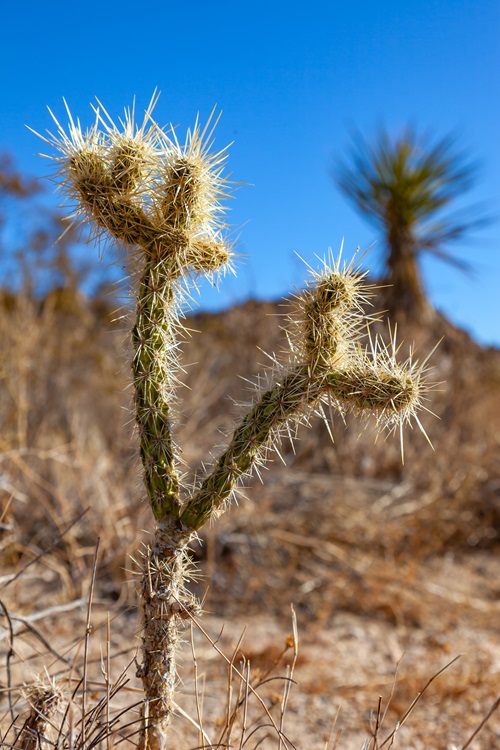
Botanical Name: Cylindropuntia fulgida
Commonly known as the cholla cactus, the jumping cholla gets its name from the Spanish word that means “thorn”. The spines, though, are not as fun as the name of the cactus. Though only an inch and a half in length, they are super sharp, enough to get painfully in the skin!
Tip: If you find yourself with a Cholla spine stuck in your skin, use a comb to gently pull it out, then use tweezers to remove any remaining glochids.
10. Kingcup cactus
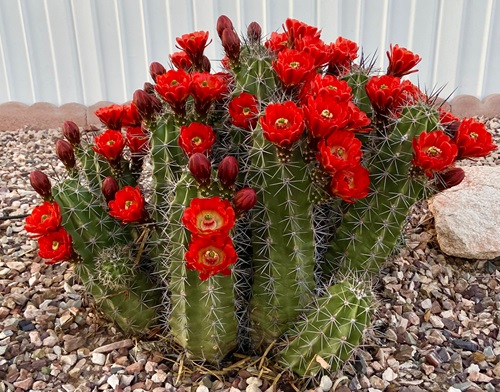
Botanical Name: Echinocereus triglochidiatus
Nicknamed the claret cup hedgehog, this cactus has thorns starting off small at 1 cm in length to a large 7 cm. Besides the spines, that can be flattened or round, straight or curved, in yellow or even in darker colors, the most eye-catching feature of this cactus are the bright scarlet blooms. These blooms have the capability to attract not only you but hummingbirds, too!
Now that you know about these cacti, you know which ones to avoid on your next trip to the desert! Plus, if you ever get stung by these thorns or their needles, check out our detailed article for tips on how to remove them and find out how long they take to dissolve. If you have any incidents or tips to share, please leave your experiences in the comments below!

